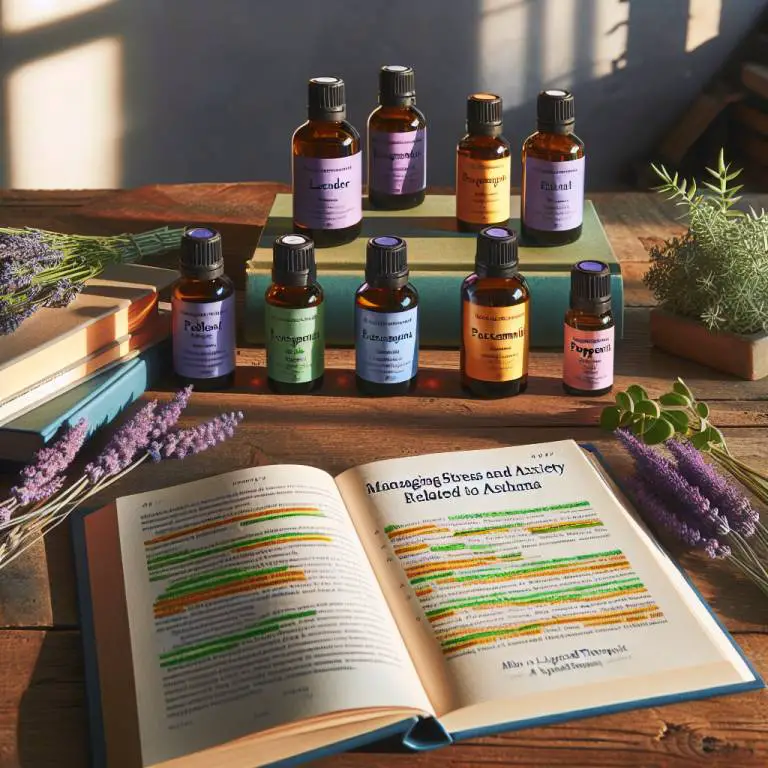Benefits of thyme tea for asthma and respiratory health
Thyme tea can be very helpful for people with asthma and those wanting to improve their respiratory health. It has natural anti-inflammatory properties that help reduce swelling in the airways, making breathing easier. Thyme also acts as an expectorant, helping to clear mucus from the lungs. Drinking thyme tea may soothe coughs and fight infections that can affect the respiratory system.

What are the active components in thyme tea that benefit asthma sufferers?
Thyme tea contains several active components that are beneficial for individuals suffering from asthma. The most significant of these is thymol, a natural compound known for its powerful antiseptic and anti-inflammatory properties. Thymol helps in reducing inflammation in the respiratory system, which is a common issue for asthma patients.
Another important component found in thyme tea is flavonoids. These naturally occurring compounds have antioxidant effects that can help protect the body’s cells from damage caused by free radicals. For asthma sufferers, this means a reduction in the oxidative stress that often exacerbates symptoms of asthma.
How does thyme tea improve respiratory health?
Thyme tea improves respiratory health by relaxing the airways and reducing inflammation, making it easier to breathe. This is particularly beneficial for people with asthma as it can help alleviate some of the discomfort associated with tightness and constriction in the chest. The antibacterial properties of thyme also play a crucial role in preventing respiratory infections that can worsen asthma symptoms.
In addition to its anti-inflammatory and antibacterial benefits, thyme tea acts as an expectorant. This means it helps in loosening phlegm and mucus from the lungs and facilitating its expulsion. Clearing mucus not only improves breathing but also reduces the risk of infection and further irritation to sensitive airways.
Explore effective teas for asthma sufferers. Learn about their benefits and how to prepare them for maximum relief.
Can drinking thyme tea reduce the frequency of asthma attacks?
Drinking thyme tea may contribute to a reduction in the frequency of asthma attacks by addressing some underlying causes such as inflammation and bacterial infections within the respiratory system. By soothing inflamed airways and fighting off pathogens, thyme tea supports overall lung health, potentially leading to fewer asthma flare-ups.
Moreover, incorporating thyme tea into one’s daily routine can enhance immune function thanks to its antioxidant content. A stronger immune system is less susceptible to triggers that commonly provoke asthma attacks, thereby indirectly contributing to their reduced occurrence.
What is the recommended way to prepare thyme tea for maximum benefits?
To prepare thyme tea effectively, start by boiling water and then adding fresh or dried thyme leaves to it. It’s recommended to use about one teaspoon of dried thyme or one tablespoon if you’re using fresh leaves per cup of boiling water. Allow the mixture to steep for about 10 minutes before straining out the leaves. This process ensures that all beneficial compounds are extracted into the water.
For those looking to maximize the therapeutic effects of thyme tea for managing asthma symptoms, drinking two to three cups daily is suggested. However, it’s important not just how you make it but also when you drink it; consuming your last cup a few hours before bedtime can help ensure a more restful sleep by alleviating nighttime symptoms often experienced by asthmatics.
| Benefit | Description |
|---|---|
| Anti-inflammatory Properties | Thyme tea contains flavonoids which reduce inflammation in the respiratory tract, helping to alleviate asthma symptoms. |
| Antioxidant Effects | The antioxidants in thyme, such as thymol, help protect lung tissue from damage and support overall respiratory health. |
| Antispasmodic Benefits | It helps relax the muscles of the trachea, providing relief from coughs and reducing the severity of asthma attacks. |
| Antimicrobial Activity | Thyme has antimicrobial properties that can help fight respiratory infections, which are often triggers for asthma exacerbations. |
| Mucolytic Effect | Thyme tea helps in breaking down mucus, making it easier to clear from the lungs and improving breathing in individuals with asthma. |
| Immune System Support | The nutrients and compounds in thyme tea can bolster the immune system, reducing susceptibility to colds, flu, and other respiratory illnesses. |
Are there any scientific studies supporting the use of thyme tea for asthma?
Yes, there are scientific studies that have looked into the effects of thyme on respiratory conditions like asthma. These studies suggest that thyme contains natural compounds that can help relax the airways and reduce inflammation. This is crucial for asthma sufferers who struggle with constricted air passages.
One particular study highlighted thymol, a compound found in thyme, for its anti-inflammatory and antimicrobial properties. Researchers believe these characteristics can significantly benefit those with asthma by easing breathing difficulties. However, it’s important to note that while promising, more research is needed to fully understand how effective thyme tea can be as a treatment option.
How does thyme tea compare with traditional asthma treatments?
Thyme tea is considered a complementary treatment rather than a replacement for traditional asthma therapies. Asthma is often managed with inhalers and corticosteroids that quickly open up airways and reduce inflammation. Thyme tea works differently by providing a natural way to support respiratory health over time.
While not as immediate in effect as medication, incorporating thyme tea into one’s diet can offer additional benefits such as antioxidants and immune support. It’s always recommended to consult with a healthcare provider before making any changes to an asthma treatment plan.
What other herbs can be combined with thyme to enhance respiratory health?
Mint and eucalyptus are two herbs often paired with thyme to boost respiratory health. Mint contains menthol, which helps soothe the throat and make breathing easier. Eucalyptus has cineole, a compound known for its anti-inflammatory properties and ability to clear congestion.
Ginger is another excellent addition due to its potent anti-inflammatory effects and ability to enhance immune response. Combining these herbs with thyme can create a powerful herbal tea blend that supports overall respiratory wellness.
Are there any side effects or risks associated with drinking thyme tea for asthma patients?
Generally, thyme tea is safe for most people when consumed in moderation. However, some individuals may experience allergic reactions or gastrointestinal upset if they have sensitivities to herbs in the mint family, which includes thyme.
Asthma patients should also be cautious about relying solely on herbal remedies like thyme tea without consulting their healthcare provider. While natural treatments can complement traditional therapies, they should not replace prescribed medications without professional guidance.
Final Thoughts
Incorporating thyme tea into an asthma management plan could offer additional support thanks to its natural anti-inflammatory and antimicrobial properties. Scientific research provides some backing for its use, but it’s essential to remember that it complements rather than replaces conventional treatments.
If considering adding thyme or any other herbal remedy to your routine, discussing it first with your doctor is crucial. This ensures your overall treatment plan remains effective and safe.






